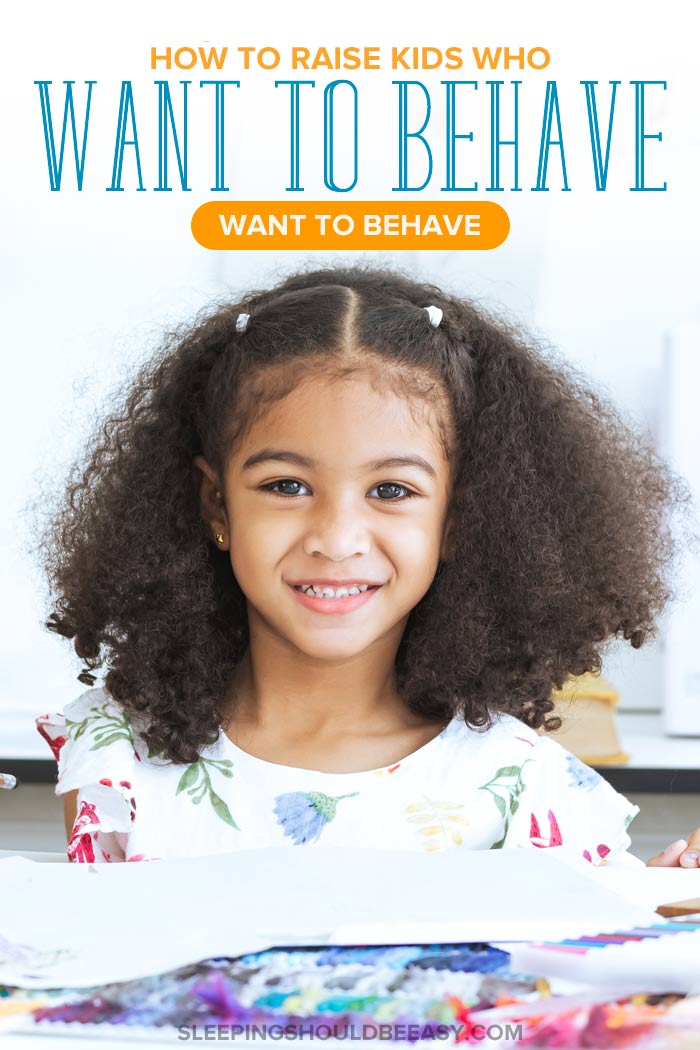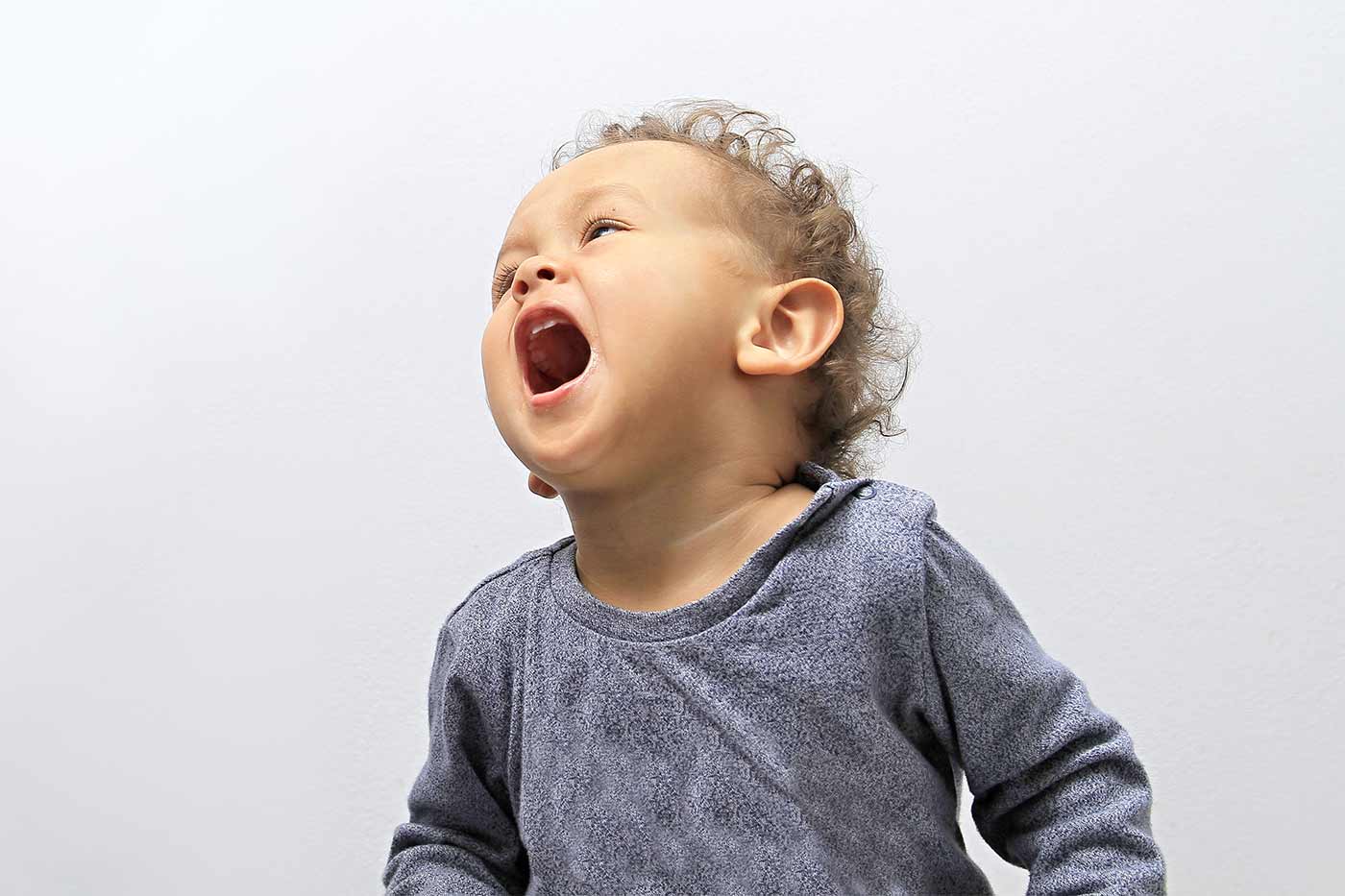How to Raise Kids Who WANT to Behave (Even When No One Is Looking)
Wouldn’t it be great if children behaved because they wanted to? Learn how to raise kids who WANT to behave, even when no one is looking.
 Plenty of parenting advice discusses kids’ misbehavior and how to get through their outbursts. We deal with tantrums, follow through with consequences, and pick our battles.
Plenty of parenting advice discusses kids’ misbehavior and how to get through their outbursts. We deal with tantrums, follow through with consequences, and pick our battles.
All good stuff. Except, what if we could raise kids who want to behave, even when no one is looking?
Kids will act up and misbehave, no doubt—even we adults do. We’re raising kids, not robots, after all. In fact, we should worry if they never tested boundaries or added to our frustration.
But what if we focus less on patching up misbehavior and instead on preventing them in the first place? What if we could have fewer power struggles and build strong relationships with our kids?
This doesn’t mean we can be permissive. We still need to set limits and apply authoritative parenting techniques. But we can address deeper issues and prevent a lot of misbehavior.
Now, this isn’t a “1-2-3 process” article, nor is it about doling out a reward to trick your child into behaving. Instead, it’s about examining how your actions contribute to her misbehavior and how to encourage her to want to behave in the first place:
Table of Contents
1. Show empathy
Does it feel like your child is always testing you? As difficult as power struggles can be, we don’t always put ourselves in their shoes.
What if you acknowledged his feelings first, no matter how difficult his behavior might be? You might notice a change in him when you restate his emotions from his point of view. “Do you feel sad because you can’t watch a movie right now?” Or “I bet it doesn’t feel good to wait for dinner.”
A mere acknowledgment of his feelings erases the divide between the two of you. You’re on the same side and showing him that you understand what he’s going through, even while you enforce consequences.
Free resource: Want to learn how to prevent power struggles and better connect? Join my newsletter and grab The Power of Empathy: Understanding Your Child’s Perspective below—at no cost to you:
2. Link good behavior to moral character
Disclosure: This article contains affiliate links. As an Amazon Associate, I earn from qualifying purchases.
Most of us understand the importance of praising good behavior. We encourage our kids to share, help with chores, and treat others kindly—and we make sure they know we appreciate their behavior.
Except what if we’re not supposed to praise their actions, but their character instead?
You see, when we acknowledge them for their actions, we focus on the behavior: “Thank you for helping!” or “Can you help your brother?” Kids then focus more on external cues to their choices, rather than looking within at their own internal moral compass.
Instead, tie your child’s good behavior with her moral character: “Thank you for being a helper!” This little change helps them internalize their behaviors and turn inward to decide, “What would a helper like me do?”
As Adam Grant writes in The Originals:
“Children are also more ethical when they’re asked to be moral people—they want to earn the identity. If you want a child to share a toy, instead of asking, ‘Will you share?’ ask, ‘Will you be a sharer?'”
Learn how to teach toddlers to share.

3. Give uninterrupted time
Have you noticed that kids act up when we’re not at our best? Either we’ve got a zillion tasks, having a bad day ourselves, or are too tired to meet their demands.
They test their limits because they need our attention. It’s not so much a direct and conscious act: “I need mom’s attention. Let me spill this milk on the table.”
Instead, they feel a challenging emotion that they’re too young to grasp, much less know what to do with. They’re tired, so they’re not making the best decisions. Nor are their patience and understanding at their best.
But here’s the thing: It’s during these least convenient and most annoying times that they need us the most.
Before your child has a chance to spiral downward, reconnect with him. When he wakes up in the mornings, hold him in a warm embrace. Have a sit-down breakfast or read a book before dashing out of the house. Wake up 10 minutes earlier and snuggle together in bed.
After school, greet him with a warm smile and a hug. Let your face show that you’ve missed him and are so glad to be in his company once again.
Giving him 100% of your time, even for 10 minutes, can erase his anxiety of having been apart. And for the rest of the day, he’s less likely to misbehave and more likely to make better choices without needing your constant attention.
Read about the importance of downtime for children.
4. Explain how poor behavior affects others
Guilt, however challenging an emotion, is a powerful one that can steer kids to make good decisions.
The next time your child misbehaves, don’t just correct her actions, but acknowledge how they affected others. You might say, “Your brother feels hurt that you took his toy away.”
You’re developing her empathy and ability to put herself in others’ shoes, even if that means feeling guilty about her actions. The combination of empathy and guilt encourages her to correct her mistakes and use self-control to avoid them in the future.
5. Set high expectations
In one study, teachers were told that certain students were more likely to succeed. However, those kids were chosen at random and there was nothing at all to distinguish them from the others.
Two years later, the study found that those kids did perform better, even though they were chosen at random at first. How? The teachers’ expectations affected the way they taught those children, gearing them up to succeed. The research found that:
“…expectations affect teachers’ moment-to-moment interactions with the children they teach in a thousand almost invisible ways. Teachers give the students that they expect to succeed more time to answer questions, more specific feedback, and more approval: They consistently touch, nod and smile at those kids more.”
The same is true with parents and kids. How do you view your child? Do you pick up after her and let her talk back because you figure that’s just how she is? Or do you expect her to behave, be self-sufficient, and respect others?
Define your expectations—she has the potential to meet them. Kids who misbehave do so because they’ve heard the message that that’s all they’re capable of.
Erase that mindset and establish new and higher expectations that demand respect, kindness, and love. Those that warrant praise for all her hard work and encouragement to reach higher.
Change your mindset, and you just might see a difference in how she behaves.
Read more about how to raise hard working kids.

6. Emphasize values over rules
We all know a “goody two shoes.” The child who follows rules to a T, all in the name of good behavior.
But kids who prioritize rules aren’t able to rely on their own conscience—they would rather follow rules than do the right thing. After all, rules are “fixed” and don’t allow them to consider other options or push limits.
Values, however, encourage kids to internalize principles and think for themselves. They don’t need to read through a list of rules to know the right thing to do. They turn inward and allow their values to guide their decisions.
So, don’t focus so much on rules. In fact, try to use the word less at home and instead talk about the values and responsibilities your family abides by. Rather than having 50 rules to follow, highlight a handful of principles that can guide your child’s decisions.
And describe why they’re important to your family. If she isn’t cleaning up toys, don’t focus so much on the rule about cleaning up after playtime. Instead, talk about the importance of taking care of toys and clearing the floor so others don’t trip and get hurt.
Read more about the difference between rules and responsibilities.

7. Watch your reaction
“Are you okay?”
That should be the first reaction when you see your child get hurt, even if she misbehaved in doing so. Not: “See? That’s why I said not to jump off the couch!” The priority should be her well-being, with discipline and teachable moments coming second.
Stay calm as well, especially during a meltdown. She needs to know you won’t go away, even when she feels negative feelings. She’s less likely to tantrum if she has you nearby to help her regulate and label her emotions.
And when she tells you something she did wrong, thank her for telling you. She shouldn’t feel so scared of your reaction or of potential consequences. You don’t want her to keep things to herself than to admit them. Let her know she always has your support no matter what.
Conclusion
Kids can behave, regardless of temperament.
Focus on building a supportive relationship with your child while still enforcing boundaries. Set high expectations of how he should behave, regardless of his past behavior.
Show empathy so he knows you’re on his side, and encourage him to do the same. Link good behavior to moral character so he internalizes his actions and turns inward to make choices. Emphasize values over rules so he adopts a set of principles to guide his behavior.
And watch your reaction when he misbehaves. A firm yet compassionate response assures him that you love him no matter what.
We need to focus on the beginning, long before our kids have even misbehaved. After all, it’s harder to correct poor actions than it is to raise kids who want to behave in the first place.
Get more tips:
- What to Do When Your Kids Refuse to Do Chores
- On Accepting Your Children for Who They Are
- How to Give Your Kids Attention (Even When They Want It at the Same Time)
Don’t forget: Join my newsletter and grab The Power of Empathy below—at no cost to you:




